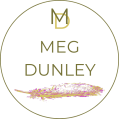
Leaning into the windy day
It’s a blizzard here today…despite it nearly being the end of spring! The completely bonkers weather reminds everyone that climate change is real, not a figment of our imagination. We have had rain, hail, gale force winds…and a little sunshine.
Leaning into the windy day Read More »






